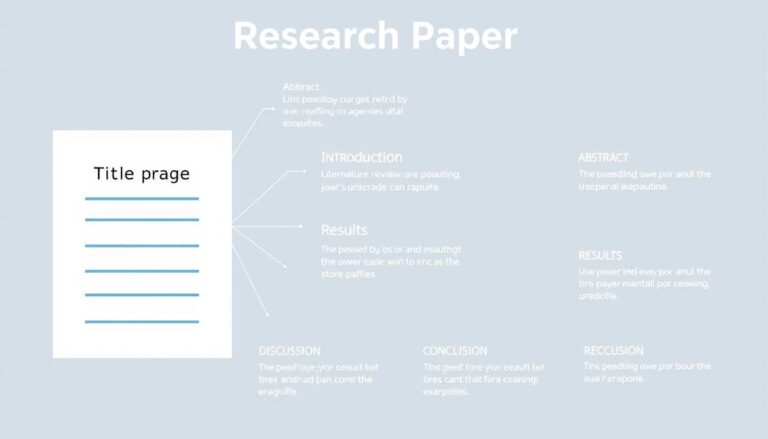The world of linguistics is constantly evolving, with new research, tools, and resources emerging regularly. Staying up-to-date with the latest developments is crucial for professionals and enthusiasts alike.
Recent advancements in linguistic research have led to a deeper understanding of language structures and usage. Furthermore, innovative tools and resources are being developed to support language learning, translation, and linguistic analysis.
As the field continues to grow, it’s essential to stay informed about the newest findings and cutting-edge technologies that are shaping the world of linguistics.
Key Takeaways
- New linguistic research is enhancing our understanding of language.
- Innovative tools are being developed for language learning and analysis.
- The field of linguistics is rapidly evolving with new technologies.
- Staying updated is crucial for professionals and enthusiasts.
- Recent advancements are supporting translation and linguistic studies.
The Current Landscape of Linguistic Research in Australia
Linguistic research in Australia is undergoing a significant transformation, with major institutions leading the charge in various focus areas. This shift is driven by advancements in technology and a renewed focus on preserving indigenous languages, reflecting a broader commitment to cultural preservation and innovation.
Major Research Institutions and Their Focus Areas
Several key institutions are at the forefront of linguistic research in Australia. These include universities and government-funded research centers that are pushing the boundaries of language studies.
University Contributions to the Field
Universities across Australia are making significant contributions to linguistic research. For instance, the University of Melbourne is renowned for its work on Australian Indigenous languages, while other institutions are exploring the applications of AI in language translation and corpus analysis.
Government Research Initiatives
Government initiatives are also playing a crucial role in advancing linguistic research. Recent funding announcements have supported projects focused on language preservation and the development of new language tools. These initiatives underscore the government’s commitment to fostering a vibrant research environment.
Impact of Recent Funding Initiatives
The impact of recent funding initiatives is being felt across the linguistic research community. Successful projects are not only advancing our understanding of language but also contributing to the development of innovative language tools.
Success Stories and Outcomes
One notable success story is the development of a new language learning platform that utilizes AI to personalize education. Such projects demonstrate the potential of linguistic research to drive meaningful change.
Challenges and Opportunities
Despite these successes, challenges remain. Researchers must navigate complex issues related to funding, community engagement, and the integration of new technologies. Addressing these challenges will be key to unlocking future opportunities in the field.
Breakthrough Discoveries in Indigenous Language Preservation
Indigenous language preservation has become a focal point of linguistic research in Australia, yielding impressive results. Recent initiatives have not only revitalized interest in Aboriginal and Torres Strait Islander languages but have also employed cutting-edge technology to document and preserve these languages for future generations.
Documentation of At-Risk Aboriginal Languages
The documentation of at-risk Aboriginal languages has been a significant area of focus. Efforts have been made to record and analyze languages that are in danger of falling out of use, ensuring their preservation for posterity.
Digital Archiving Projects
Digital archiving projects have played a crucial role in this endeavor. By creating digital repositories of language recordings, texts, and other linguistic materials, researchers have made it possible to store and share these resources widely. Digital archiving has not only preserved the languages but also made them accessible to communities and researchers alike.
Community-Led Revitalisation Efforts
Community-led revitalization efforts have been instrumental in the preservation of Aboriginal languages. By involving local communities in the documentation and teaching of their languages, these initiatives have ensured that the languages remain relevant and are passed on to younger generations.
Torres Strait Islander Language Initiatives
Torres Strait Islander language initiatives have also seen significant progress. Programs aimed at preserving and promoting Torres Strait Islander languages have been implemented in various communities.
Educational Programs in Schools
Educational programs in schools have been developed to teach Torres Strait Islander languages, helping to keep these languages alive among young people. These programs not only teach the languages but also promote cultural understanding and appreciation.
Technology-Assisted Preservation Methods
Technology-assisted preservation methods have been employed to support the preservation of Torres Strait Islander languages. From language learning apps to online dictionaries, technology has provided innovative solutions to the challenge of preserving Indigenous languages.
The breakthroughs in Indigenous language preservation are a testament to the collaborative efforts of researchers, communities, and governments. As we move forward, it is essential to continue supporting these initiatives to ensure the long-term preservation of Australia’s rich linguistic heritage.
Latest News on Technological Tools for Linguists
The field of linguistics in Australia is witnessing significant advancements in technological tools, revolutionizing research and analysis. These innovations are not only enhancing the accuracy of linguistic studies but also opening new avenues for research and collaboration.
AI-Powered Translation Innovations
AI-powered translation tools are at the forefront of linguistic technology, offering unprecedented capabilities in language translation and analysis. These tools are being refined to better handle the nuances of Australian English and Indigenous languages.
Australian English Recognition Advancements
Recent advancements in AI have significantly improved the recognition and processing of Australian English, allowing for more accurate linguistic analysis. This development is crucial for both academic research and commercial applications.
Indigenous Language Processing Technologies
There is also a growing focus on developing technologies that can process and analyze Indigenous languages, preserving these valuable linguistic resources for future generations.
“The preservation of Indigenous languages is not just about language; it’s about culture and identity,” said Dr. Jane Smith, a leading linguist in the field.
Corpus Analysis Software Updates
Corpus analysis software is another area seeing significant updates, with new features enhancing the ability of researchers to analyze large datasets. These updates are making it easier for linguists to study language patterns and trends.
Australian English Corpus Developments
The Australian English Corpus is being expanded and updated, providing a more comprehensive resource for researchers studying Australian English. This corpus is invaluable for understanding the nuances of Australian English.
User-Friendly Interfaces for Researchers
New software is also focusing on creating user-friendly interfaces, making it easier for researchers to utilize complex linguistic tools without extensive technical knowledge.
These technological advancements are set to revolutionize the field of linguistics in Australia, offering new insights and methodologies that will benefit both researchers and the broader community.
Academic Publications and Journal Releases
The field of linguistics has seen a surge in innovative research outputs from Australian institutions. Recent academic publications have been pivotal in advancing our understanding of linguistic theories and practices.
Notable Papers from Australian Universities
Several Australian universities have been making significant contributions to linguistic research. Notable papers have emerged, focusing on both theoretical and applied linguistics.
Groundbreaking Research Findings
Research conducted by the University of Melbourne has led to new insights into language acquisition patterns among children. This study has implications for educational linguistics.
Methodological Innovations
A team from the Australian National University has developed novel methodologies for analyzing linguistic data, enhancing the field’s analytical capabilities.
International Collaborations with Australian Researchers
Australian researchers have been actively engaging in international collaborations, enriching the global linguistic community with their insights.
Cross-Cultural Linguistic Studies
A collaborative project between the University of Sydney and a European university has yielded significant findings on cross-cultural communication patterns.
Global Recognition of Australian Contributions
The contributions of Australian researchers have been recognized globally, with several publications in top-tier international journals.

| University | Research Focus | Notable Findings |
|---|---|---|
| University of Melbourne | Language Acquisition | New insights into children’s language patterns |
| Australian National University | Methodological Innovations | Novel data analysis techniques |
| University of Sydney | Cross-Cultural Linguistics | Significant cross-cultural communication patterns |
Educational Resources for Language Professionals
The landscape of linguistic education is evolving, with numerous resources available for language professionals. As the demand for skilled linguists continues to grow, it’s essential to stay updated on the latest educational tools and opportunities.
Online Courses and Certification Programs
Language professionals can now access a variety of online courses and certification programs designed to enhance their skills. These programs are offered by reputable institutions and are tailored to meet the needs of linguists in different areas.
University-Sponsored Learning Opportunities
Several Australian universities offer online courses and certification programs in linguistics. For instance, the University of Melbourne provides courses on language teaching methodologies. You can explore more resources like the American Council on the Teaching of Foreign for additional learning opportunities.
Industry-Recognised Qualifications
Industry-recognised qualifications are available through various professional bodies. These qualifications are crucial for career advancement and demonstrate a level of expertise in specific areas of linguistics.
Open Access Materials for Researchers
Open-access materials are a valuable resource for researchers. These include digital libraries, archives, and collaborative research platforms that provide access to a wealth of information.
Digital Libraries and Archives
Digital libraries and archives house extensive collections of linguistic resources. For example, the Australian National University’s digital library offers a vast collection of materials on Indigenous languages.
Collaborative Research Platforms
Collaborative research platforms enable linguists to work together on projects, share resources, and disseminate their findings. These platforms are essential for advancing linguistic research.
| Resource Type | Description | Provider |
|---|---|---|
| Online Courses | Language teaching methodologies | University of Melbourne |
| Certification Programs | Industry-recognised qualifications | Professional Bodies |
| Digital Libraries | Indigenous language resources | Australian National University |
Upcoming Conferences and Events in the Linguistic Community
The Australian linguistic scene is set to host a number of significant conferences and events, offering insights into the latest research and technological advancements.
Australian Linguistics Society Events
The Australian Linguistics Society is hosting several key events throughout the year. These include:
Annual Meetings and Special Sessions
The annual meetings will feature special sessions on cutting-edge research in linguistics, including updates on the latest methodologies and findings. These sessions are expected to attract leading scholars from across Australia.
Student Workshops and Networking Opportunities
In addition to the annual meetings, the society is organizing workshops specifically for students. These workshops will provide valuable networking opportunities and insights into the latest trends in linguistic research.
International Gatherings with Australian Participation
Australia is also set to play a significant role in several international linguistic gatherings. These events will showcase Australian research on the global stage.
Keynote Presentations by Australian Scholars
Several Australian scholars have been invited to deliver keynote presentations at these international events, highlighting the country’s expertise in the field.
Virtual and In-Person Event Formats
The events will include both virtual and in-person formats, catering to a global audience and ensuring inclusivity. This flexibility is expected to enhance participation and engagement.

Funding Opportunities and Grants for Linguistic Research
With several funding opportunities on the horizon, linguistic researchers in Australia are poised to advance their studies with financial backing. The availability of grants and funding initiatives is crucial for the progression of research in this field.
Government-Sponsored Research Initiatives
The Australian government offers various grants and funding programs to support linguistic research. These initiatives are designed to foster innovation and excellence in the field.
Australian Research Council Grants
The Australian Research Council (ARC) provides significant funding for research projects that demonstrate high merit and potential impact. ARC grants are highly competitive and support a wide range of linguistic research areas.
State-Level Funding Programs
In addition to federal funding, state governments also offer programs to support linguistic research. These programs often focus on regional priorities and community needs, providing targeted support for local projects.
Private Sector and NGO Funding
Beyond government initiatives, the private sector and non-governmental organizations (NGOs) play a vital role in funding linguistic research. Their support can come in various forms, including corporate sponsorships and foundation grants.
Corporate Sponsorships for Language Projects
Many corporations are interested in supporting language projects that align with their corporate social responsibility goals. Corporate sponsorships can provide substantial funding for research that has practical applications or community benefits.
Foundation Grants and Their Focus Areas
Foundations dedicated to linguistic research or related fields offer grants that support specific areas of study. These grants often have particular focus areas, such as endangered languages or language education.
Policy Changes Affecting Linguistic Research and Education
Policy updates are reshaping the field of linguistics in Australia, affecting both research and educational practices. These changes are driven by various factors, including national policy developments and international agreements.
National Policy Developments
Recent national policy developments have significant implications for linguistic research and education. Two key areas of focus are language education standards and research ethics guidelines.
Language Education Standards
The Australian government has introduced new language education standards aimed at enhancing the quality of language teaching across the country. These standards emphasize the importance of linguistic diversity and cultural awareness in education.
Research Ethics Guidelines
New research ethics guidelines have been established to ensure that linguistic research is conducted with integrity and respect for Indigenous cultures. These guidelines provide a framework for researchers to follow, ensuring that their work is both ethical and responsible.
International Agreements and Their Impact
Australia’s participation in international agreements is also influencing linguistic research and education. Notable initiatives include UNESCO language preservation efforts and cross-border research collaborations.
UNESCO Language Preservation Initiatives
Australia is actively involved in UNESCO’s language preservation initiatives, which aim to document and protect endangered languages. These efforts are crucial for preserving linguistic diversity globally.
Cross-Border Research Collaborations
The Australian government is fostering cross-border research collaborations to advance linguistic research. These partnerships enable researchers to share knowledge and resources, driving innovation in the field.
Industry-Academia Collaborations in Linguistics
Australia is witnessing a surge in industry-academia collaborations that are transforming the landscape of linguistic studies. These partnerships are not only advancing research but also creating new opportunities for innovation and application.
Corporate Partnerships with Universities
Universities across Australia are forming significant partnerships with corporations to drive linguistic research forward. These collaborations are facilitating the exchange of ideas and resources, leading to groundbreaking discoveries.
Technology Companies and Language Research
Technology companies are playing a pivotal role in language research by providing cutting-edge tools and platforms. For instance, AI-powered language processing technologies are being developed in collaboration with universities to enhance language learning and translation services.
Publishing Industry Connections
The publishing industry is also connecting with academic institutions to develop new materials and resources for language education. This includes the creation of digital libraries and educational software that cater to diverse linguistic needs.
Commercial Applications of Linguistic Research
The commercial applications of linguistic research are vast and varied, ranging from language learning platforms to translation and localisation services. These applications are not only benefiting businesses but also contributing to the preservation and promotion of languages.
Language Learning Platforms
Language learning platforms are being developed using linguistic research to provide personalized and effective learning experiences. These platforms are leveraging AI and machine learning to adapt to individual learning styles.
Translation and Localisation Services
Translation and localisation services are being enhanced through linguistic research, enabling businesses to reach global markets more effectively. These services are crucial for companies looking to expand their customer base across different regions and languages.
Emerging Trends in Australian Linguistic Studies
Emerging trends in Australian linguistic studies are transforming the way we understand language and its applications. The field is witnessing significant advancements, particularly in computational linguistics and sociolinguistic research.
Computational Linguistics Growth
The growth of computational linguistics in Australia is driven by innovations in machine learning and big data analysis. These advancements are revolutionizing the field.
Machine Learning Applications
Machine learning is being increasingly used for language processing tasks, such as sentiment analysis and speech recognition. This technology has numerous applications in industries like customer service and healthcare.
Big Data Analysis in Language Studies
Big data analysis is enabling researchers to study language patterns on a large scale. This has led to new insights into language use and language evolution.
| Application | Description | Impact |
|---|---|---|
| Sentiment Analysis | Analyzing customer feedback | Improved customer service |
| Speech Recognition | Transcribing spoken language | Enhanced accessibility |
Sociolinguistic Research Directions
Sociolinguistic research in Australia is exploring the impact of multiculturalism on language and the evolution of Australian English varieties.
Multicultural Language Influences
Australia’s multicultural society is influencing language use, with multilingualism becoming increasingly prevalent. This diversity is enriching the linguistic landscape.
Evolution of Australian English Varieties
Australian English is evolving, with new varieties emerging due to cultural and social changes. Research is documenting these changes, providing insights into the dynamic nature of language.
Conclusion: The Future of Linguistic Research and Resources in Australia
The Australian linguistic research landscape is evolving, driven by the latest news and advancements in language tool announcements. The Australian Research Council’s review of the National Competitive Grants Program and the release of the discussion paper “A New Plan for ARC-Funded Research” signal a significant shift in the research funding landscape.
Researchers and institutions are responding to these changes, with various universities receiving funding for linguistics-related projects. For instance, Laura Smith-Khan’s project on improving migrant legal literacy in regional and urban NSW has received support from the UNE Internal Funding Scheme.
To stay updated on the latest developments, readers can visit the Australian Linguistics Society newsletter for the latest news and announcements. As the field continues to grow, it is essential to stay informed about new research initiatives, funding opportunities, and emerging trends in linguistic studies.
The future of linguistic research in Australia looks promising, with ongoing projects in language documentation, such as Margaret Sharpe’s work on dictionaries of the northern dialects of Bundjalung. As new discoveries are made and technological tools continue to emerge, the linguistic community will remain at the forefront of innovation and progress.





